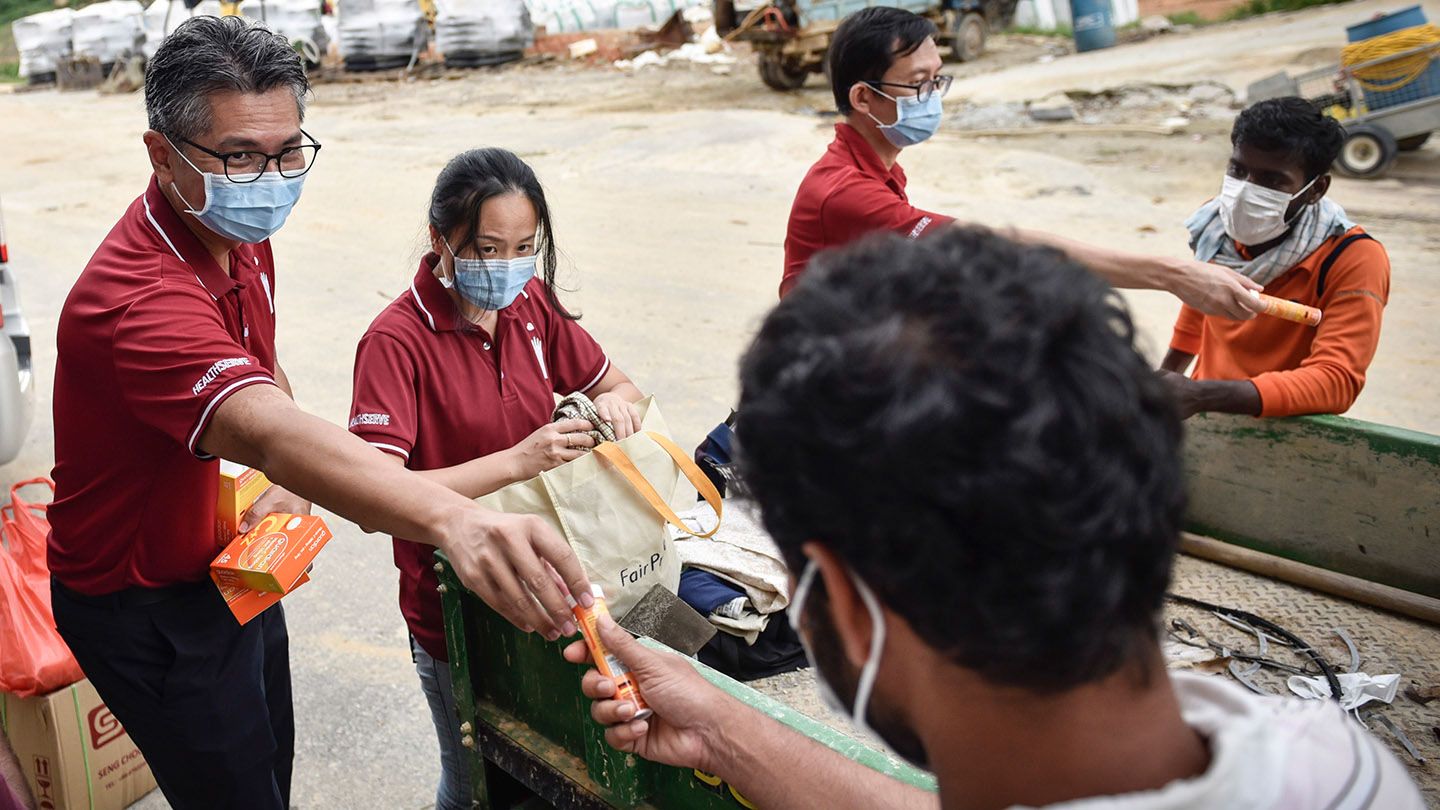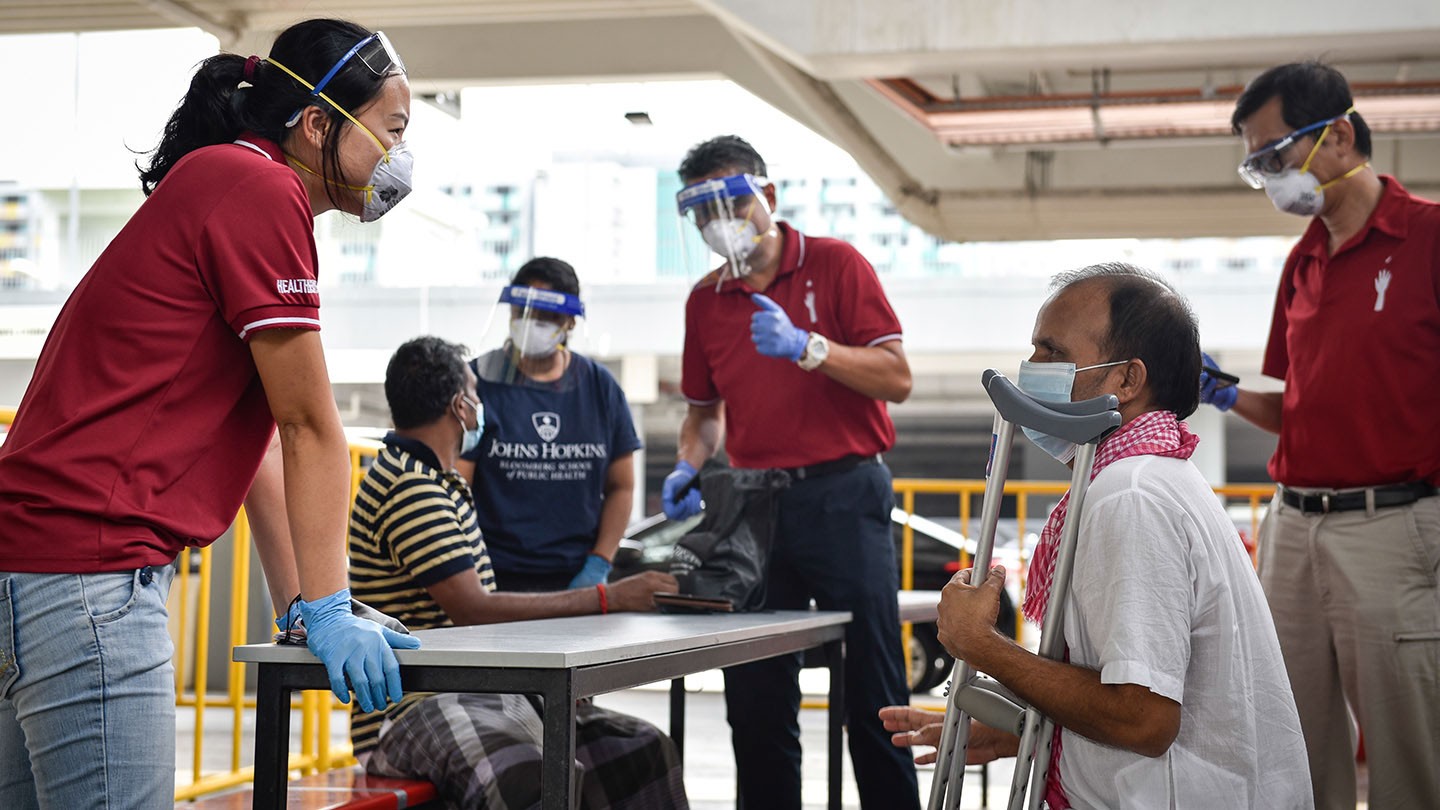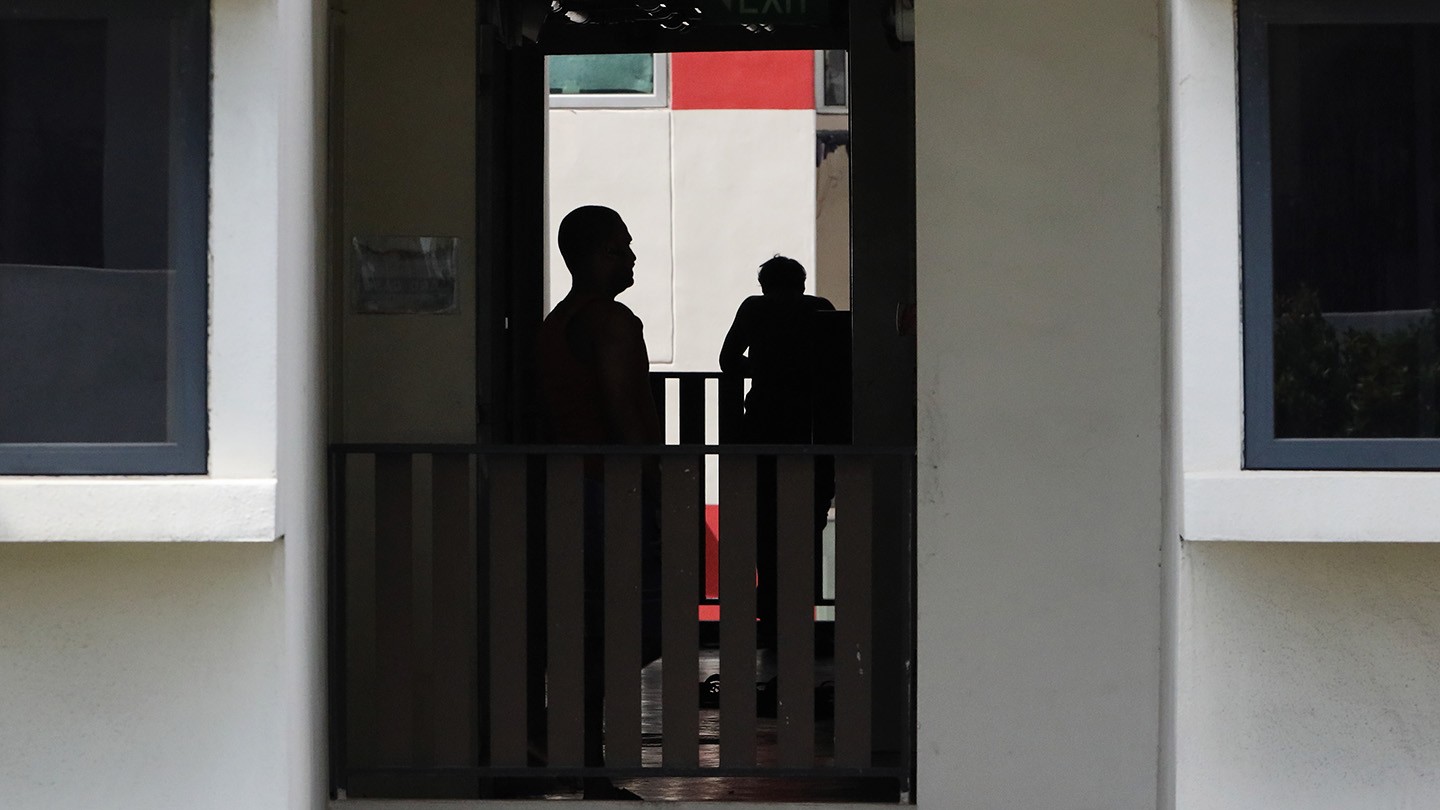
HealthServe: “This pandemic has taken everyone by surprise”
Low wage migrant workers in Singapore have been hit hard by COVID-19, as it spreads through the overcrowded dormitories where they live and leads to increased unemployment in the community. We talk to Hossain Sharif, one migrant who has been given vital food, shelter and medical support by charity HealthServe, in partnership with Barclays.
When the lockdown caused by the COVID-19 pandemic hit Singapore in April, Hossain Sharif found himself stuck in the residential dormitory he shares with thousands of other migrant workers.
With people being told to stay indoors, he spent his days sharing washing, cooking and toilet facilities and his nights sleeping just feet away from up to 20 other people.
Sharif is one of more than one million migrant workers in Singapore who travel from surrounding countries such as India and Bangladesh to work in the construction and shipping industries.
It’s a community that’s been particularly badly hit by the crisis, with cramped living conditions making social distancing impossible. They make up almost 95% of Singapore’s count of more than 57,000 infections.
“We’ve had to go full force because of COVID-19”
The pandemic has also had a huge impact on the workers’ livelihoods. In Sharif’s case, his work permit was cancelled as a result of the crisis, and he found himself without an income for four months.
His situation slowly started to improve after he was introduced by a friend to HealthServe – a charity supported by Barclays that aims to bring “healing and hope” to the community.
“HealthServe gave me free food, financial support, rental support and also friendship,” he says. “They gave me a counselling session which helped me, and my caseworker also gave me more information about my rights and what I should do.”

Singapore charity HealthServe is supporting migrant workers with food and shelter – with help from Barclays.
This pandemic has taken everyone by surprise. Nobody expected it to grow so quickly. HealthServe has been involved since day one, so we saw the evolution of the whole thing
Executive Director of HealthServe

Migrant workers in Singapore have been badly hit by the crisis, with cramped living conditions making social distancing impossible.
Michael Cheah, Executive Director of the charity, says Sharif’s situation is not uncommon. Many people arrive in the country in debt, having paid middlemen to help them find work. And with the crisis now meaning that many workers have lost their jobs, they are left unable to pay back their loans or return home.
“We’ve had to go full force because of COVID-19. The need for the groundwork is really high,” says Cheah, referring to the way the charity has stepped up its efforts – with help from Barclays’ £100m COVID-19 Community Aid Package, which supports charities around the world delivering vital relief to the people who have been hardest hit by the pandemic.
Barclays has funded three of HealthServe’s COVID-19 programmes which focus on providing shelter, providing food, and continuing to offer access to medication, a longstanding priority for the charity. “Before COVID-19, we knew there were many people that required care, but we just didn’t realise how big that number was,” says Cheah.
“Some workers self-medicate, partly because they couldn’t afford the medication in Singapore and also because they don’t want to let their employers know that they have a condition.
“They had been getting medicine from their home countries, but when lockdown came obviously that stopped. That’s when we started going to every single dormitory. We have certified doctors on hand for the workers and we provide the medication that is required.”
Addressing the “emotional challenge” of the crisis
This distressing situation has highlighted the need for mental health support in migrant worker communities – a crucial issue, particularly because migrant workers are already far away from their families. “People are facing loneliness, depression and severe anxiety,” says Cheah.
“One migrant worker realised his family back home had run out of food and had not been eating for a few days. He stopped eating in Singapore as well, because he felt guilty having food while his family at home was suffering.
“That dynamic of being far from home and not being able to support their families has created a big emotional challenge. They smile all the time, but the things they go through – they are more resilient than anyone I know.”
The organisation’s mental health programme, which was launched last year, has been adapted with the help of local psychiatrists to extend the support offered. Recent instances of self-harm in the community have highlighted the urgent need for this.
“We started out early during the pandemic thinking that we could go digital. But we realised that though it seems efficient, it’s very ineffective, particularly because people use all kinds of communication platforms. Face-to-face interaction and body language are different from giving information on a website, so we fine-tuned our approach,” says Cheah.
“We want to be able to contribute to a solution”
Cheah believes collaboration with other organisations is essential if the needs of migrant workers, which frequently “fall through the cracks”, are to be met.
Reflecting on the situation over the last few months, he says: “This pandemic has taken everyone by surprise. Nobody expected it to grow so quickly. HealthServe has been involved since day one, so we saw the evolution of the whole thing. It happened right before our eyes.
“We know that when we are no longer needed, it will be the happiest that any charity organisation could feel, so we don’t want to be there permanently. But we want to be able to help and at least contribute to a solution.”